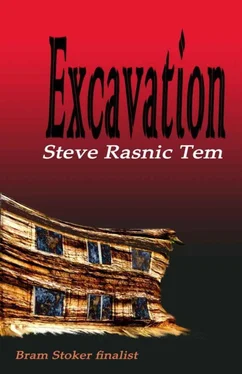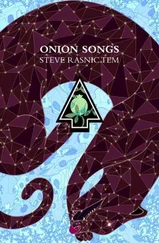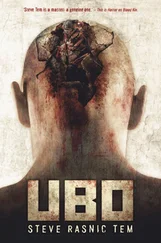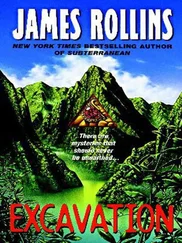Charlie was wondering if Buck was getting hungry about now. First place he’d gotten a glimpse of the old hound had been on the walk in front of Taylor’s store. The dog had been limping up the slab, turning his head this way and that to sniff, and so slowly it seemed to take him five minutes to check each direction. Charlie had been standing in the doorway of his own store talking to Ben Taylor. Buck had ambled right past him, paying no attention whatsoever, as if he were blind. He crept slowly to the potbellied stove and collapsed there, sound asleep. Charlie had had him ever since, almost ten years. He was an incredibly old dog. And how Charlie loved that dog…
Across the street from Ben Taylor’s store there was a small cafe open three days a week, owned by somebody from out of town but run by Doris Parkey’s younger sister, Audra Larson. Some of the miners ate their breakfasts there, and Charlie tried to get in one day a week for some coffee just to be sociable.
At the end of town on that side of the street there was a small railway and freight station. The train came in every three days, just after dark. Charlie realized there was one due in that evening, and for some reason thinking about it made him nervous. Of course, that meant there’d be more goods to put on the shelves the next day, and he supposed that was what he was anticipating. Seemed like there were always several things wrong with his order, and he’d have items he’d never even heard of before and no idea what they were good for. It was too much trouble to send them back, and they’d usually end up in one of those boxes on the shelves in his storage room. He was too old for such aggravation.
Last store on the slab was his own, with the little building he used as the town post office hanging awkwardly on its left side like a black sheep on its mother’s teat. The post office certainly looked that part; although his store was finished in fine old red brick, the little post office was covered front, back, top, and sides with coal black tar paper. Charlie’s daddy had been Simpson Creeks’ first postmaster and had built the post office with what he had on hand. Charlie had always intended to improve it some, but he’d never had the funds. He had a deal with the postmaster up at the capital; they didn’t get rid of the Simpson Creeks office in favor of some larger office a hundred miles away, and he didn’t ask them for any money.
Charlie usually had the store swept out, the shelves and counters straightened, and the lids off the apple barrels in time to open at eight A.M. But the first thing he had to do before he unlocked the door was to feed Buck, who should have been sleeping out by the shed in back of the store as a kind of honorary watchdog. Some watchdog; Charlie grinned. Buck was so old and toothless… if he had arms and hands he’d carry an armload of Charlie’s merchandise down to any halfway friendly burglar’s automobile. Happily there’d never been a crime in the Creeks aside from husbands and wives—and once two brothers—killing each other.
Buck didn’t come to greet Charlie when he rattled the dog’s water can by the store’s back steps.
“Hey, lazy! Water, boy!” But there wasn’t the usual answering bark, the lumbering of crooked legs trying to maneuver faster than they could manage.
Charlie walked slowly out to the shed. The dog was old, he reminded himself. It was bound to happen sooner or later.
Then he saw where the fence had been torn down, and the streaks of blood here and there on the bright green grass. Buck had always perked up when Charlie had worked on the lawn here, fertilizing it, weeding it. Buck would sit under the big shade tree by the shed, with his head up, as if listening. Eyes gleaming. The most animated Charlie had ever seen the old dog.
He followed the trail of strewn blood, crushed grass, and broken boards around the side of the shed, and even in his apprehension he felt amazed. Incredibly, all evidence showed that the old dog had really put up a fight. Charlie never would have guessed.
The old dog’s thin flanks were pressed against the fence that ran behind the shed. Half-buried by the weeds. Charlie got down on his knees slowly. Another massive hole had been torn in the board fence here. He gazed through it, up the trail of smashed weeds and bushes that led up the slope to Nickles’ Lumberyard on top of the hill. It was the only other business in the community, just outside town; you followed the gravel road as it curled around the hill to its top, and the road ended there in Nickles’ yard. Charlie hadn’t seen old man Nickles in weeks; he kept pretty much to himself. Charlie gazed at the slope for a long time. He could not remember the last time he had cried.
After awhile he turned to his old pet. He wanted to carry him back to the shed, look into the old wrinkled face once more. But he searched for the dog’s head in vain.
Joe Manors didn’t have to work that day—the Nole mine was on a three-day shift now for those without the seniority—and he was at a loss about what to do with himself. The mine’s troubles weren’t his fault, but he still felt so embarrassed about not working, so out of sorts about it, that he wouldn’t talk to anyone about his work schedule, and had stayed hidden up in his room on his days off. Christ… they all knew he didn’t have the seniority, so who was he trying to fool?
So today was his day to go up to the town, sit around Charlie Simpson’s store and talk, maybe check into some odd jobs. It was time he did something with those free days.
Besides, it had gotten bad around Miss Pierce’s place since old Hector went off his beam this last time. Inez was always snapping at you for dirtying her carpet with your boots or getting fingerprints on her towels or talking too loud or having bad table manners, most everything, and she’d never done that before. In fact, you couldn’t have asked to meet a more agreeable soul. But lately she was treating most everybody like the devil himself.
He’d always been a bit clumsy in nice houses. Too wide-shouldered, too narrow-hipped. It made him awkward when he walked. With his short black hair and red face he made a funny picture, he knew, not fitting in hardly anywhere. Except in the cab of a dozer—he felt right at home there.
He really couldn’t blame Inez for being so irritable; Hector had made a frightening sight this last time: what little hair he had all twisted around his head, his hands groping through the water and mud of the creek bank, his face muddy, his eyes wild, and garbling the worst gobbledygook Joe’d ever heard. Crazy as a half-drowned cat. Yelling about a woman with bright red hair. It had made Inez blush. Joe’d had to hide his face to keep her from seeing him laughing. He’d liked to died.
But then the old man had started talking about “bloody teeth” and things beginning to “rip apart in the night for that young boy” and it had scared Joe Manors, scared him bad. The wild look in the old man’s eyes as they carried him up to bed and the way he spit when he cried out all that garbage.
Joe Manors’ daddy used to say there was enough out in the woods and out in the animals that could terrify a man right out of his wits without the men themselves getting so scary. All that craziness comes from nature, his daddy used to say, and Joe Manors was beginning to agree. Things were busy out there in the dark; if you were real quiet yourself you could sense it. And when you did sense it, you could feel it clutching at your heart, your breath, all the juices that kept you alive and going.
When Joe Manors turned onto the street running through the Creeks he stopped, the hair bristling on his arms. Something had happened. Charlie Simpson was sitting out in front of his store with his head in his hands. Ben Taylor was crouched down beside him, talking low.
Читать дальше












